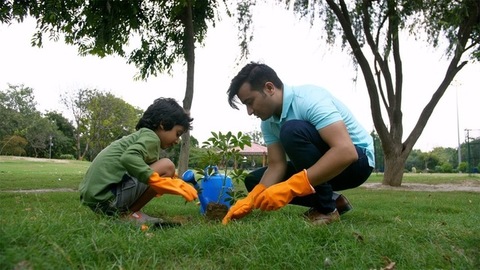If 100,000 startups and 125 Unicorns opted for a nine-hour workday with breaks for lunch and tea, India’s path to a $5 trillion economy might have been different.”…writes Pavan Kaushik
When Infosys co-founder NR Narayana Murthy advised Indian youth to work for 70-hours a week to boost the country’s economy, there was a huge hue-and-cry and the working class reacted sharply, countering his advice.
Many who understood the essence of what Narayana Murthy said, looked at the brighter side.
His advice got mixed reactions with some saying — it’s too much to ask — while others threw their weight behind him.
Just to mention, former President of India, the late Dr APJ Kalam, worked almost 18 hours a day — that makes 90 hours in a five-day week — and also took out time for his Veena practice. “You have to dream before your dreams can come true. Time management is the key to success”, he always said.
But then, one has to dream to become Narayana Murthy or Dr Kalam and it’s not everyone’s cup-of-dream. Or is it that dreams have choices too?
Imagine, if over 100,000 startups and about 125 Unicorns had decided to work for nine hours a day, enjoying in between, two hours of lunch time, and four cups of tea — a mandatory break of 30 minutes each; India might not be heading for an economy of $5 trillion.
No wonder, this disruptive thinking by startups and Unicorns has accumulated collective valuation of about $300 billion, creating millions of jobs as well.
All said and done, the post-Covid era has changed life, lifestyles and value of work-life balance. ‘Value addition’ in the corporate sector has changed to ‘value of life and well-being’. Being alive and working has become more important than working and being alive. This disruptive thinking has severely dented the income-curve.
The fact of the matter is that more than 65 per cent of the country’s working population is looking for ‘me-time’ apart from time for the family and busting stress and anxiety. Out of this, about 25 per cent are ready to negotiate on their salaries and perks. Enjoying ‘challenge’ in a job is a good statement while applying for a post but not after being appointed.
My suggestion would be to have another column in KRAs and KPIS of ‘how much time spent with the family’, and it should be rated equally.
At one point, an employee was happy devoting more than 8-9 hours a day to get an exceptional escalation in appraisal and CTC. Today that same employee is happy taking a job that gives him space to consider his health, family outings, time with children, and social get-togethers, etc.

You would find that many employees switch off their mobile phones once they leave office, or do not attend office calls.
It was never easy for the income curve to move backward, but eventually it decided to move backwards. This gave space for the work-life balance curve to move upwards.
One can argue that the promoters of corporates – conglomerates and organisations have spent sleepless nights to build empires providing jobs to millions of people, and would continue to do so, but then, employees are not promoters. The thinking is different and so is the vision.
The essence of the backward moving income curve can be contested and argued, as who doesn’t need abundance of money to live a good life; but the fact is, if you think so, be ready to devote your time and energy. Nothing comes free in life.
ALSO READ: Microsoft becomes most valuable company ever













